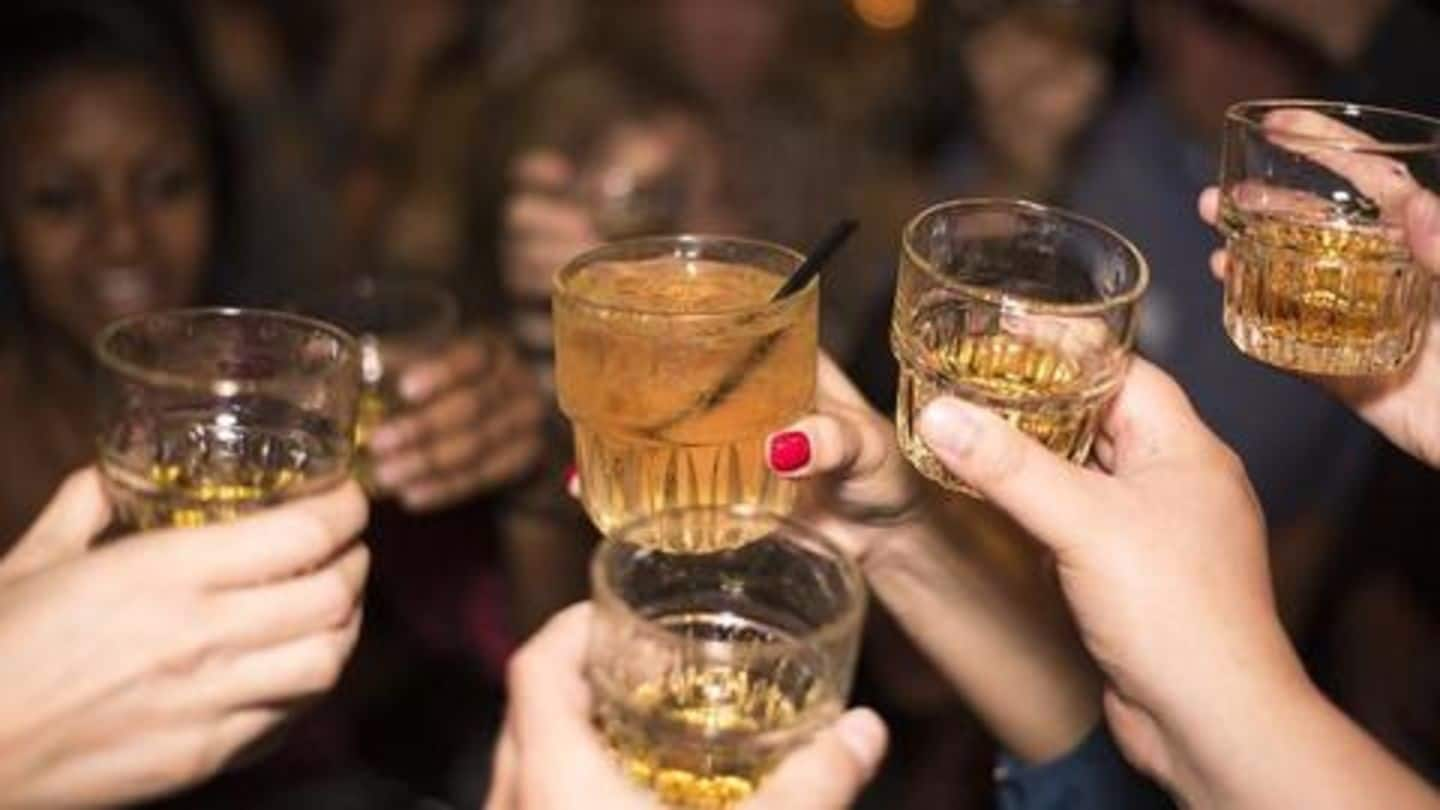
Soon, you'll get 'fake alcohol' to get buzzed, not drunk
What's the story
People love drinking, but they also know it comes with some serious drawbacks. Along with hangovers, the toxicity of alcohol increases the risk of cancers, strokes, heart diseases as well as liver, brain, and nervous system damage. This has prompted some UK-based researchers to work on fake alcohol, an alternative that will get you buzzed but not drunk. Here's all about it.
Solution
Alcarelle for the joys of drinking
David Nutt, the director of Imperial College London's Neuropsychopharmacology unit, and his team are working on a synthetic alcohol substitute called Alcarelle, The Guardian reported. They claim their formula could be added into drinks, giving people a way to enjoy all the benefits of alcohol and none of the downsides. Meaning, you'll only feel a pleasant buzz regardless of how many drinks you have.
Advantage
And, no worry of getting drunk
Normally, you have to be careful about how many drinks to take, but with this solution, you can have as many drinks as you want to - without worrying about side effects. So, neither you'd act weirdly under the influence of this 'fake alcohol' nor will there be the risk of hangovers or falling prey to life-threatening diseases in the long run.
Development
How Alcarelle will be developed
Speaking to The Guardian, Nutt claimed that his solution relies on targeting specific parts of the brain to control the effect of alcohol. Essentially, alcohol affects Gaba receptors of the brain, and they have found a special molecule that can stimulate these receptors by varying degrees when administered with a drink. This way, the fake drink only triggers gentle tipsiness and no hangover.
Quote
Here's what Nutt said about his idea
"We know where in the brain alcohol has its 'good' effects and 'bad' effects, and what particular receptors mediate that - Gaba, glutamate and other ones. The effects of alcohol are complicated but you can target the parts of the brain you want to target."
Future plans
Development underway but there's a long way to go
Nutt's team has already secured $26 million in funding to convert their solution into a commercial product, maybe an additive/ingredient, for alcoholic drinks. However, the researchers say there's a long way to go as they still have to carry out safety tests and get necessary regulatory approvals. For this, they plan to create a full-fledged 'fake alcohol' and demonstrate its advantages over regular drinks.